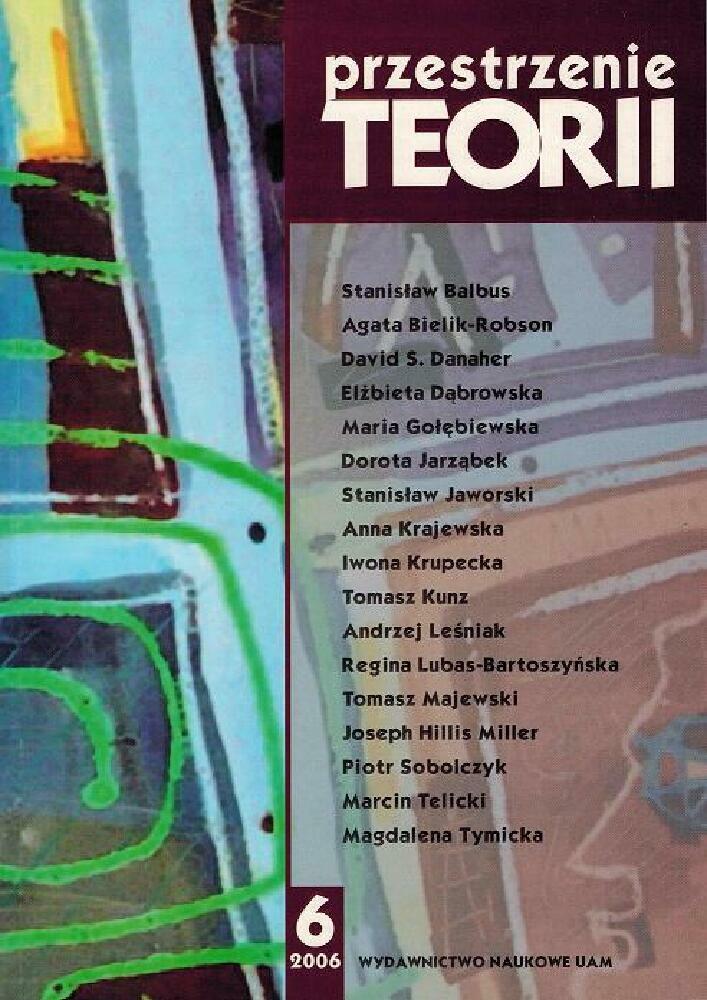Abstract
The subject of this article is the departure of drama in the direction of conversation - a linguistic fact of great existential and social importance. Although conversation itself seems to be nondramatic, in fact it revolutionises the concept of time, space, action, forming separate genres and trends in drama. The author distinguishes three models of conversational drama (in which a conversation became either a subject or a building material of the whole work of drama): the theatre of amorous conversation (A. de Musset, C. Norwid), theatre of intellectual confrontation (conversation in the drama of ideas in G.B. Shaw's style), theatre discussing its own status and functions (an improvisation/impromptu genres). Thus, the drama based on the autonomy of conversation is not a 20th century invention, although its old, intellectual and rhetoric models have been replaced by modern categories: of body and voice.License
Authors
Authors of texts accepted for publication in Przestrzenie Teorii are required to complete, sign and return to the editor's office the Agreement for granting a royalty-free license to works with a commitment to grant a CC sub-license.
Under the agreement, the authors of texts published in Przestrzenie Teorii grant the Adam Mickiewicz University in Poznań a non-exclusive, royalty-free license and authorize the use of Attribution-NonCommercial-NoDerivatives 4.0 International (CC BY-NC-ND 4.0) Creative Commons sub-license.
The authors retain the right to continue the free disposal of the work.
Users
Interested Internet users are entitled to use works published in Przestrzenie Teorii since 2015, for non-commercial purposes only, under the following conditions:
- attribution - obligation to provide, together with the distributed work, information about the authorship, title, source (link to the original work, DOI) and the license itself.
- no derivatives - the work must be preserved in its original form, without the author's consent it is not possible to distribute the modified work, such as translations, publications, etc.
Copyrights are reserved for all texts published before 2015.
Miscellaneous
Adam Mickiewicz University in Poznań retains the right to magazines as a whole (layout, graphic form, title, cover design, logo etc.).
